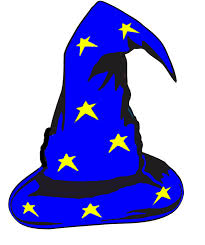It looks like you're using an Ad Blocker.
Please white-list or disable AboveTopSecret.com in your ad-blocking tool.
Thank you.
Some features of ATS will be disabled while you continue to use an ad-blocker.
1
share:
It would be interesting to know if sounds we make effect the frequencey of reality, and if they go on for ever growing quieter but never ending,
having a butterfly effect up the levels of frequencies causing a change by intentional vibration, just like shamanic drumming, can it come back to us
bringing with it the intent?
Just a idea.
A Very young MAN named Hue received a message telepathically, via symbols he was asked to give feedback via sounds. A translator of thought to sound, a vibration/frequencey creator was his role.
(telepathically)

"I've lost something, i can remember what it is, but I don't know what it looks like, and cant remember what its called. can you help me find it?
Hue: "Sure how can I help?"

"universe>conciousness>symbol>writing>numbers>words>sounds>universe."

Hue: "as long as it doesent hurt"
"it will Hurt, but I shall reward you for it"
Hue: "ok let's do it"

(thousands of years later...)
"You found it! Thank you."

Hue: "Your welcome."
"Here! you can have it, it looks better on you"

Wow thanks! What is it again, where did I put it?.......
Wi-fi
Just a idea.
A Very young MAN named Hue received a message telepathically, via symbols he was asked to give feedback via sounds. A translator of thought to sound, a vibration/frequencey creator was his role.
(telepathically)

"I've lost something, i can remember what it is, but I don't know what it looks like, and cant remember what its called. can you help me find it?
Hue: "Sure how can I help?"

"universe>conciousness>symbol>writing>numbers>words>sounds>universe."

Hue: "as long as it doesent hurt"
"it will Hurt, but I shall reward you for it"
Hue: "ok let's do it"

A dragon is a legendary creature, typically with serpentine or reptilian traits, that features in the myths of many cultures.
Dragons are often held to have major spiritual significance in various religions and cultures around the world. In many Asian cultures dragons were, and in some cultures still are, revered as representative of the primal forces of nature, religion and the universe.
They are associated with wisdom—often said to be wiser than humans—and longevity. They are commonly said to possess some form of magic or other supernatural power, and are often associated with wells, rain, and rivers. In some cultures, they are also said to be capable of human speech. In some traditions dragons are said to have taught humans to talk.
(thousands of years later...)
"You found it! Thank you."

Hue: "Your welcome."
"Here! you can have it, it looks better on you"

Wow thanks! What is it again, where did I put it?.......
Wi-fi
edit on 7-8-2013 by Wifibrains because: (no reason given)
edit on 7-8-2013 by Wifibrains because: (no reason given)
Originally posted by Astyanax
Sounds do not persist for ever. There is a random ambient noise level, even in a so-called silent room, caused by the random motion of air molecules. When a sound fades below this level, it's gone. More
Gone from the room maybe, out of ear-shot, but do the sound waves dissipate or do they continue on their path? In a way, I think it's both. The sound waves probably pass by or through other ones coming from all directions as they swirl around and cross each other like wakes left by boats and jet skis crossing each other's paths on a calm lake. The waves do level out as they spread, but they effect and are effected by all other waves they come into contact with. I suspect the same is true of sound waves.
Never really thought about sound/intention, OP, but it reminds me of the saying "What goes 'round, comes 'round.'
Side-note: So what about light waves? I believe they DO go on forever (until they collapse to particle, maybe?) So if light, then why not sound?
reply to post by new_here
No, they're gone for ever, their energy absorbed by the molecules of gas or liquid they set in motion.
The same goes for photons, except that they're usually absorbed at the subatomic level, typically by electrons.
No, they're gone for ever, their energy absorbed by the molecules of gas or liquid they set in motion.
The same goes for photons, except that they're usually absorbed at the subatomic level, typically by electrons.
edit on 8/8/13 by Astyanax because: there is no free lunch.
Originally posted by Astyanax
reply to post by new_here
No, they're gone for ever, their energy absorbed by the molecules of gas or liquid they set in motion.
The same goes for photons, except that they're usually absorbed at the subatomic level, typically by electrons.
edit on 8/8/13 by Astyanax because: there is no free lunch.
Interesting. When I hear the sound, when the waves come into my ear canal, do I absorb them? Do they become part of me? And what exactly are 'they' anyway? Sound waves, yes... but what specifically is the wave composed of? Does it vary, or is it always and forever the same elements being formed into waves of sound?
Oh, the questions... haha
reply to post by new_here
Ah, then we share an interest.
Not just through your ears. You absorb sound through your whole body. As a rule of thumb, acoustic engineers used to calculate that the human body has the sonic absorbency of a three-foot-square window. Nowadays the measurements are a bit more precise.
Not really. They jiggle the molecules of your body about a bit, heating them up by an infinitesimal amount that is rapidly dissipated by your natural cooling mechanisms. Light works the same way. It heats you up. You cool down.
Of course, the sound you hear is recorded by your brain, and could be stored as a memory. In that sense I suppose it does become a part of you—in a way.
Matter. Any kind will do, more or less. Sound travels through gases, liquids and solids. Sound is really just stuff vibrating.
As you will see from the previous answer, any element (or compound, pretty much) can be a conductor of sound. Some do it better than others. Water and steel are great conductors. Cork and feathers, not so much.
Ask away, and I will do my best to answer.
Interesting.
Ah, then we share an interest.
When I hear the sound, when the waves come into my ear canal, do I absorb them?
Not just through your ears. You absorb sound through your whole body. As a rule of thumb, acoustic engineers used to calculate that the human body has the sonic absorbency of a three-foot-square window. Nowadays the measurements are a bit more precise.
Do they become part of me?
Not really. They jiggle the molecules of your body about a bit, heating them up by an infinitesimal amount that is rapidly dissipated by your natural cooling mechanisms. Light works the same way. It heats you up. You cool down.
Of course, the sound you hear is recorded by your brain, and could be stored as a memory. In that sense I suppose it does become a part of you—in a way.
And what exactly are 'they' anyway? Sound waves, yes... but what specifically is the wave composed of?
Matter. Any kind will do, more or less. Sound travels through gases, liquids and solids. Sound is really just stuff vibrating.
Does it vary, or is it always and forever the same elements being formed into waves of sound?
As you will see from the previous answer, any element (or compound, pretty much) can be a conductor of sound. Some do it better than others. Water and steel are great conductors. Cork and feathers, not so much.
Oh, the questions... haha.
Ask away, and I will do my best to answer.
Thanks for the information.
It makes sense that sound gets quieter and seemingly disapears, by as you say, being absorbed.
I would take it that air pressure settles the ambience back to silence after the introduction of a sound.
Perhaps it goes into the "space" between atoms and is recorded/absorbed by the omnipresence of the universe. And comes back as something else. Spells?
If it does not go into this "space" the space, if inteligent, could still hear/feel it as it is everywhere.
How does sound travel through a vacumm if there are no molecules to excite?
It makes sense that sound gets quieter and seemingly disapears, by as you say, being absorbed.
I would take it that air pressure settles the ambience back to silence after the introduction of a sound.
Perhaps it goes into the "space" between atoms and is recorded/absorbed by the omnipresence of the universe. And comes back as something else. Spells?
If it does not go into this "space" the space, if inteligent, could still hear/feel it as it is everywhere.
How does sound travel through a vacumm if there are no molecules to excite?
edit on 8-8-2013 by Wifibrains because: (no reason given)
reply to post by Wifibrains
The pressure variations just equalise and air pressure everywhere in the locality returns to its ambient level.
Sound does not travel through a vacuum. As I said earlier, you need matter to carry sound.
I would take it that air pressure settles the ambience back to silence after the introduction of a sound.
The pressure variations just equalise and air pressure everywhere in the locality returns to its ambient level.
How does sound travel through a vacumm if there are no molecules to excite?
Sound does not travel through a vacuum. As I said earlier, you need matter to carry sound.
reply to post by Astyanax
What!
Isn't that what science called it. They must be cowboys to call it something that it's not.
The difinition of bang is a loud noise, and I have taken that to litteral when comparing it to something called the big bang.
Maybe it's some sort of spell? To call it something it is not is a LIE.
What!
Isn't that what science called it. They must be cowboys to call it something that it's not.
The difinition of bang is a loud noise, and I have taken that to litteral when comparing it to something called the big bang.
Maybe it's some sort of spell? To call it something it is not is a LIE.
Originally posted by Astyanax
reply to post by new_here
Oh, the questions... haha.
Ask away, and I will do my best to answer.
Cool, thanks!
So, regarding this...
What I think I hear you saying is, waves of vibrational energy (in the auditory spectrum- aka sound waves) fan out and 'excite' forms of matter as they pass thru them. Thus the waves themselves are not comprised of anything. (How am I doing so far?)
And what exactly are 'they' anyway? Sound waves, yes... but what specifically is the wave composed of?
Matter. Any kind will do, more or less. Sound travels through gases, liquids and solids. Sound is really just stuff vibrating.
Questions/Tweak my musings:
1. Is it safe to say sound waves are stored energy (potential energy?) on a journey, having been propelled into motion by force applied to matter elsewhere? (ie: kid beats a drum in the next room- kinetic energy excites the drum, adjacent air molecules, hardwood floor, et cetera, in a succession of waves, which travel thru the dog, a wall, and my glass of wine, finally passing thru me and beyond.)
2. Cork and feathers fail to conduct sound well because of their mass and/or form (cork = porous; feathers = random surface) in which the vibrational energy gets 'stuck' or 'tangled in' and ricochets around until it... (help me here b/c I know energy never goes away it just changes form...) So what really transpires when it enters cork? I'd say it absorbs it, but that would imply cork is chock full of energy potential, LoL..
3. True or False: The more excitable matter is (vibratory potential?) the more conductive it is. Or have I got this 'bass ackwards'?
4.An echo in a valley doesn't go on forever b/c some of the sound is absorbed each time, subtracting from the initial release, until all has been absorbed. (Where does it actually go when it is absorbed? Something is exciting those molecules so we ARE talking energy, right?)
5. What categories of... forces/energy? ... have the power to generate sound? (kinetic, and...)
6. You made me see a connection between the minuscule amount of heat potential in sound waves + feathers not conducting sound (thus absorbing it) + ducks can swim in REALLY cold water and not get frostbite! Would you ponder any relevance that may have (such as energy potential) to that cork in my wine bottle? (Besides the fact I can drink it and get a warm fuzzy feeling, LoL...
Thanking you in advance!
Originally posted by Wifibrains
Thanks for the information.
It makes sense that sound gets quieter and seemingly disapears, by as you say, being absorbed.
I still love your concept of intention, relating to sounds. I'm not quite ready to 'throw out the baby with the bathwater' and maybe our nice sound-expert can roll this idea around...
If I say words of affirmation to myself 50 times a day, they vibrate along getting absorbed but also conducted (depending on the matter they encounter on their journey)... so there is a chance they will come back to me and I may 'hear' them at a very, very low level without being conscious of the sound so much as they reach my brain thru minuscule vibrations of my ear drum too small to be considered audible, but existing just the same and affecting my consciousness. That is where I can grasp a sense of 'intention' with my words.
Also, sound-dude, what about sound 'bouncing off' things (echos) vs. conductivity?
reply to post by new_here
I'm sorry for the delayed reply. I've been busy in the real world.
About fifty-fifty. The way you put it isn't wrong, but it may not be the most helpful way to understand what's going on. Energy isn't an object, so it can't be made of anything. A classic physical definition of energy is 'the capacity to do work'. A 'capacity' isn't an object; it's an attribute possessed by objects.
Not potential. Sound is kinetic energy – energy associated with movement. So...
Actually, kinetic energy is being transferred from the drumstick to the drumhead, from the drumhead to the air, from air to the dog, etc. Each vibrates in turn. Making that happen absorbs the kinetic energy (which was converted from potential energy stored in the drummer's muscles), causing it to dissipate and die out.
That's not a bad description. The energy just heats up the cork a little, which then loses heat to the surrounding air until it returns to room temperature. Bye-bye energy. It hasn't gone away, just warmed the room by a tiny, almost immeasurable amount.
Everything vibrates (or can be made to) and the energy required to set it vibrating varies with the frequency at which it is made to vibrate. The frequency at which a mechanical object or system can be set in motion with the least energy expenditure is called the resonant frequency of that object or system.
Answered above. It becomes heat.
There are only two kinds of energy: kinetic and potential. They take different forms, such as thermal energy, electromagnetic energy, nuclear energy, etc., but each of these forms is convertible into any other. They can all be converted, therefore, to mechanical energy. That is to say, into energy that can be perceived (by animal senses) as sound. Sound is made in only one way: by things hitting other things.
Insulators like cork and feathers (and steel wool) obstruct the transfer of mechanical energy through them. Yes, thermal insulators are usually pretty good acoustic insulators and vice versa.
I'm sorry for the delayed reply. I've been busy in the real world.
What I think I hear you saying is, waves of vibrational energy (in the auditory spectrum - aka sound waves) fan out and 'excite' forms of matter as they pass thru them. Thus the waves themselves are not comprised of anything. (How am I doing so far?)
About fifty-fifty. The way you put it isn't wrong, but it may not be the most helpful way to understand what's going on. Energy isn't an object, so it can't be made of anything. A classic physical definition of energy is 'the capacity to do work'. A 'capacity' isn't an object; it's an attribute possessed by objects.
1. Is it safe to say sound waves are stored energy (potential energy?) on a journey, having been propelled into motion by force applied to matter elsewhere?
Not potential. Sound is kinetic energy – energy associated with movement. So...
1. Kid beats a drum in the next room - kinetic energy excites the drum, adjacent air molecules, hardwood floor, et cetera, in a succession of waves, which travel thru the dog, a wall, and my glass of wine, finally passing thru me and beyond.
Actually, kinetic energy is being transferred from the drumstick to the drumhead, from the drumhead to the air, from air to the dog, etc. Each vibrates in turn. Making that happen absorbs the kinetic energy (which was converted from potential energy stored in the drummer's muscles), causing it to dissipate and die out.
2. Cork and feathers fail to conduct sound well because of their mass and/or form (cork = porous; feathers = random surface) in which the vibrational energy gets 'stuck' or 'tangled in' and ricochets around until it... (help me here b/c I know energy never goes away it just changes form...) So what really transpires when it enters cork? I'd say it absorbs it, but that would imply cork is chock full of energy potential, LoL.
That's not a bad description. The energy just heats up the cork a little, which then loses heat to the surrounding air until it returns to room temperature. Bye-bye energy. It hasn't gone away, just warmed the room by a tiny, almost immeasurable amount.
Porous materials such as mineral wool work to control and reduce noise by allowing air movement into the fabric of the material. The fluctuations of air molecules – which form sound waves – move into the body of the material, where friction between the air particles and the material’s narrow airways cause sound energy to be dissipated as heat. Source
3. True or False: The more excitable matter is (vibratory potential?) the more conductive it is. Or have I got this 'bass ackwards'?
Everything vibrates (or can be made to) and the energy required to set it vibrating varies with the frequency at which it is made to vibrate. The frequency at which a mechanical object or system can be set in motion with the least energy expenditure is called the resonant frequency of that object or system.
4.An echo in a valley doesn't go on forever b/c some of the sound is absorbed each time, subtracting from the initial release, until all has been absorbed. (Where does it actually go when it is absorbed? Something is exciting those molecules so we ARE talking energy, right?)
Answered above. It becomes heat.
5. What categories of... forces/energy? ... have the power to generate sound? (kinetic, and...)
There are only two kinds of energy: kinetic and potential. They take different forms, such as thermal energy, electromagnetic energy, nuclear energy, etc., but each of these forms is convertible into any other. They can all be converted, therefore, to mechanical energy. That is to say, into energy that can be perceived (by animal senses) as sound. Sound is made in only one way: by things hitting other things.
6. You made me see a connection between the minuscule amount of heat potential in sound waves + feathers not conducting sound (thus absorbing it) + ducks can swim in REALLY cold water and not get frostbite! Would you ponder any relevance that may have (such as energy potential) to that cork in my wine bottle? (Besides the fact I can drink it and get a warm fuzzy feeling, LoL...
Thanking you in advance!
Insulators like cork and feathers (and steel wool) obstruct the transfer of mechanical energy through them. Yes, thermal insulators are usually pretty good acoustic insulators and vice versa.
new topics
-
Shocking Number of Voters are Open to Committing Election Fraud
US Political Madness: 3 minutes ago -
Gov Kristi Noem Shot and Killed "Less Than Worthless Dog" and a 'Smelly Goat
2024 Elections: 49 minutes ago -
Falkville Robot-Man
Aliens and UFOs: 1 hours ago -
James O’Keefe: I have evidence that exposes the CIA, and it’s on camera.
Whistle Blowers and Leaked Documents: 1 hours ago -
Australian PM says the quiet part out loud - "free speech is a threat to democratic dicourse"...?!
New World Order: 2 hours ago -
Ireland VS Globalists
Social Issues and Civil Unrest: 3 hours ago -
Biden "Happy To Debate Trump"
Mainstream News: 3 hours ago -
RAAF airbase in Roswell, New Mexico is on fire
Aliens and UFOs: 3 hours ago -
What is the white pill?
Philosophy and Metaphysics: 5 hours ago -
Mike Pinder The Moody Blues R.I.P.
Music: 5 hours ago
top topics
-
A Warning to America: 25 Ways the US is Being Destroyed
New World Order: 13 hours ago, 21 flags -
Mike Pinder The Moody Blues R.I.P.
Music: 5 hours ago, 7 flags -
Biden "Happy To Debate Trump"
Mainstream News: 3 hours ago, 7 flags -
James O’Keefe: I have evidence that exposes the CIA, and it’s on camera.
Whistle Blowers and Leaked Documents: 1 hours ago, 5 flags -
What is the white pill?
Philosophy and Metaphysics: 5 hours ago, 5 flags -
Australian PM says the quiet part out loud - "free speech is a threat to democratic dicourse"...?!
New World Order: 2 hours ago, 5 flags -
Ireland VS Globalists
Social Issues and Civil Unrest: 3 hours ago, 4 flags -
RAAF airbase in Roswell, New Mexico is on fire
Aliens and UFOs: 3 hours ago, 4 flags -
Putin, Russia and the Great Architects of the Universe
ATS Skunk Works: 9 hours ago, 3 flags -
Falkville Robot-Man
Aliens and UFOs: 1 hours ago, 1 flags
active topics
-
Putin, Russia and the Great Architects of the Universe
ATS Skunk Works • 26 • : RussianTroll -
Shocking Number of Voters are Open to Committing Election Fraud
US Political Madness • 0 • : FlyersFan -
Candidate TRUMP Now Has Crazy Judge JUAN MERCHAN After Him - The Stormy Daniels Hush-Money Case.
Political Conspiracies • 803 • : xuenchen -
Gov Kristi Noem Shot and Killed "Less Than Worthless Dog" and a 'Smelly Goat
2024 Elections • 18 • : StoutBroux -
Re-election Tactic - JOE BIDEN Hints He May Put Books in the Homes of Black People.
2024 Elections • 30 • : WeMustCare -
Australian PM says the quiet part out loud - "free speech is a threat to democratic dicourse"...?!
New World Order • 3 • : Athetos -
Biden "Happy To Debate Trump"
Mainstream News • 35 • : WeMustCare -
University of Texas Instantly Shuts Down Anti Israel Protests
Education and Media • 297 • : cherokeetroy -
-@TH3WH17ERABB17- -Q- ---TIME TO SHOW THE WORLD--- -Part- --44--
Dissecting Disinformation • 699 • : Thoughtful3 -
Ditching physical money
History • 22 • : StudioNada
1

